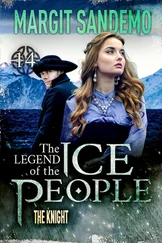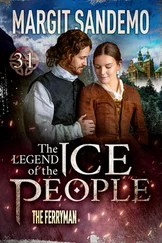Ellen lay back down. Matty was on his back, too. She was as close to touching him as she could possibly be without actually touching him. Matty remembered when they were in high school and they’d gone to see a movie and their elbows were on the same armrest and Ellen was as close to touching him as she could possibly have been without actually touching him. This was exactly the opposite of that.
Still, they didn’t talk. Matty’s mind was nervous. It flitted from Locs to Ellen, Locs to Ellen. Where are you? his mind asked Locs. Where have you been? it asked Ellen. He turned a little and watched his wife watch the ceiling, watched her watch the ceiling for an unbearably long time, thought of the most irritating question one person can ask another person, remembered how Ellen had reacted to his asking that particular question many times over the years by answering as truthfully and pain-givingly as possible, tried to stop himself from asking that question, failed.
“What are you thinking?” he asked her.
“That I want a divorce.”
“Seriously?” he said, and Ellen nodded, still looking at the ceiling, and then Matty rolled onto his back to look at it, too. Why did people look up in times of great distress or sadness? Matty could imagine a student paper on the subject : Throughout the history of mankind, in times of great famine or strife or war, people of all faiths and persuasions would look to the stars for guidance and comfort. That paper would probably get an A—, despite the gross generalizations. But he and Ellen weren’t looking at the stars; they were looking at the ceiling, which needed some serious replastering. Not much comfort there. The whole thing might fall on their heads at any time. Maybe then they could see the stars. Of course, they might already be crushed dead by the fallen ceiling. And possibly there was your comfort.
“Wow,” Matty said.
“You asked,” Ellen said.
“Fair enough,” he said.
“I’m sorry, Matty,” Ellen said, and she sounded like she meant it. She even put her hand on Matty’s forearm and left it there for a little while, and by the time she moved the hand, Matty felt like he was married again, marriage being in this case something you feel like fighting for only after you’ve already lost it.
“Am I really going to lose you?” Matty asked.
“Yes,” Ellen said. “I’m going to sleep now.” Then she rolled away from Matty and did that.
I am not going to lose you. I am going to fight for you! Matty thought but did not say — mostly because of the transparent emptiness of the sentiment, but also because he wasn’t totally sure whether he was thinking it about Ellen or Locs. And in either case, with what weapon would he fight? And at whom would he aim it?
I have blood on my hands, Søren had decided to say to Jens Baedrup’s widow.
“I’m going to tell her I have blood on my hands,” was what he said to his friend Tarik.
“Not literally,” Tarik said.
“Well, I might not use that exact phrase.”
“No, I mean you don’t literally have blood on your hands.”
“Gasoline.”
“And not even that anymore,” Tarik said. He’d had gasoline on his hands, too. But not blood, literally or figuratively. And in any case, it had been four years ago. Tarik’s general feeling on the matter was, Come on, that was four years ago.
“That’s easy for you to say,” Søren said. “You don’t have blood on your hands.”
They were walking along Skagen Havn. It was a Saturday, early fall, which felt a lot like early winter. The cold wind was making the sailboats wag and bobble and strain at their moorings. The light was low and giving shine to the dull tankers as they chugged in and out of port. Søren and Tarik had worked all day at the boatyard. Their jobs were decent, decent jobs they hadn’t had four years ago. Four years, four years. The wind gusted and the white awnings flapped over the red fish houses.
Tarik said, “Why do we paint the fish houses red when we paint every other building in this town yellow?”
Søren didn’t miss the “we.” Four years ago, Tarik would not have said “we.” That was why they both had gasoline on their hands now, except that Søren had more than just gasoline. That’s why he needed to go see Jens Baedrup’s widow.
“ We, ” Søren repeated.
“Just keep my name out of it,” Tarik said.
“You wouldn’t say ‘we,’ ” Søren said, “if you had blood on your hands.”
Søren thought it would probably be difficult to find the address of the widow of a cartoonist whom he’d murdered in what the newspapers had called a terrorist firebombing, but that was not the case. It hadn’t been difficult to find the cartoonist’s address, either. It hadn’t been difficult for Søren to burn down his house, or for Tarik to burn down the newspaper’s offices. It hadn’t even been difficult for them to escape capture after the firebombing, after the newspapers had reported that the cartoonist had died in the fire Søren had set. No one from the police or the Danish Security and Intelligence Service had ever questioned them, even though there were barely any Muslims in Skagen, and even though it had been the only murder committed in Skagen that year, and the year before that, and so on. Murder, murder; blood, blood. That was the difficult part: having the words murder and blood crawl through his head for the past four years. Although he supposed the murder hadn’t been easy for the cartoonist, either. Not to mention his widow.
Anyway, she lived in Aarhus, just a couple of hours south. The newspaper reports had given him her name. The Internet had given him her address and then directions how to get there. But first Søren had to borrow his dad’s car.
So he went home, which was less than a mile from the boatyard where he and Tarik worked, right across the street from OC Trawl, where his father worked, making fishing nets. His house was the house in which Søren had grown up and in which he still lived. It was yellow, of course, and had a red tile roof, also of course. His parents’ names were Faruk and Benan, but they’d named him Søren, although their last name was Korkmaz. As far as Søren was concerned, they might as well have just named him Dane, Son of Turks.
Søren walked in the front door. His father was sitting on the couch, watching professional handball on TV. Handball was his father’s favorite sport, even though he didn’t understand the rules, because pretty much no one understood the rules. You were allowed to run and leap and catch and hurl the ball, except, in some circumstances, for some mysterious reasons, when these activities were forbidden.
“Kolding and Aalborg,” Søren’s father said. “Don’t tell me who won.”
“What?”
“It was actually played last night,” Søren’s father said. “They’re replaying it on TV now. Don’t tell me who won.”
Søren sat down next to his father, who smelled of salt and fish, even though the nets he made hadn’t yet touched the sea. Or maybe it was Søren himself who smelled that way. He watched the handball for a minute, but then it started to hurt his eyes, and so he looked out the front window. It was dark, and darker still with the fog, which came right up to the window. A deep-throated horn blew out there somewhere, and the fog seemed to get somehow even thicker against the pane. It was one of those times when it was difficult to imagine that it wasn’t six o’clock everywhere in the world. Søren turned back to the TV and saw a bunch of rangy white men in knee and elbow pads hugging each other.
Читать дальше












